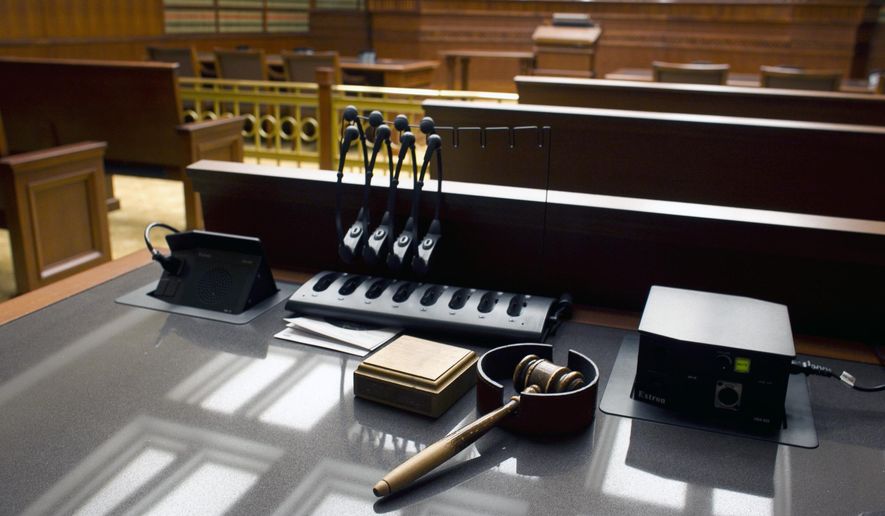A federal judge ruled this week that the state of West Virginia must allow transgender patients covered by Medicaid to receive gender transforming surgeries, reasoning that individuals with a gender dysphoria diagnosis must be treated the same as those suffering from other medical conditions.
U.S. District Judge Robert Chambers for the Southern District of West Virginia said it was discriminatory for the state to ban such procedures from Medicaid recipients while allowing others who do not have a gender dysphoria diagnosis to get the same surgeries, such as a mastectomy or vaginoplasty.
Under the state’s policy, a woman with a cancer-related diagnosis could have a mastectomy, but a transgender man with gender dysphoria desiring to have breasts removed could not do so under Medicaid coverage.
The ruling pointed to expert testimony from Dr. Loren Schechter, a Chicago-based plastic surgeon who said a vaginoplasty, or construction of a vagina, could be performed for a transgender patient or for a non-transgender woman suffering from congenital absence of the vagina.
“It is undisputed that the criteria determining whether or not such treatment is covered under the Medicaid Program hinges on a diagnosis — but when treatment is precluded for a diagnosis based on one’s gender identity, such exclusion invidiously discriminates on the basis of sex and transgender status,” Judge Chambers, a Clinton appointee, wrote in Tuesday’s order.
The judge also took issue with coverage for other transgender care, including “psychiatric diagnosis evaluation, psychotherapy, psychological evaluation, counseling, office visits, hormones, and lab work.”
Gender dysphoria, also known as gender identity disorder, relates to the distress one feels when he or she does not identify with the sex assigned at birth.
About 0.6% of the U.S. population identifies as transgender, according to court papers.
Judge Chambers, who was nominated to the court by President Clinton in 1997, said the small number of people does not matter. He cited the Supreme Court’s 2020 decision in Bostock v. Clayton County, in which the court ruled 6-3 that employers cannot discriminate against LGBTQ employees “on the basis of sex.”
The high court reasoned that “sex” did not mean protection just for biological gender, but also gender stereotypes.
“That subset of transgender people is equally protected against discrimination,” Judge Chambers wrote.
A transgender man seeking a bilateral mastectomy and a transgender woman seeking a vaginoplasty and breast reconstruction surgery brought the lawsuit. They argued that the state’s policy violated the equal protection clause of the U.S. Constitution.
They challenged West Virginia’s decision in 2004 to exclude “transsexual surgery” from coverage “regardless of medical necessity.”
West Virginia has participated in the Medicaid program since it began in 1965. The federal-state program gives health insurance to certain low-income people whose “resources are insufficient to meet the cost of necessary medical services.”
Avatara Smith-Carrington, a lawyer with Lambda Legal, a pro-LGBTQ legal group representing the plaintiffs, applauded the court’s ruling.
“Protecting and advancing health care for transgender people is vital, sound, and just. Transgender West Virginia Medicaid participants deserve to have equal access to the same coverage for medically necessary health care that cisgender Medicaid participants receive as a matter of course,” the Lambda Legal attorney said.
Shauntae Anderson, one of the plaintiffs and a West Virginia Medicaid participant, said transgender patients deserve access to health care.
“The exclusion negatively affects my health and well-being as well as the health and well-being of other transgender Medicaid participants in our community. Gender-confirming care is health care, and it is lifesaving,” she said.
Rick Manning, president of Americans for Limited Government, criticized the ruling.
“It is not shocking that a Clinton-appointed federal judge is attempting to equate mastectomies and breast reconstruction for women who have been afflicted with cancer to optional transgender surgeries,” he said. “The left has apparently gone completely off their rocker and every woman in West Virginia should be appalled.”
A spokesperson for the West Virginia attorney general’s office did not immediately respond to a request for comment about the ruling.
About half of the states ban transgender surgeries under Medicaid, though they allow other forms of treatment for gender dysphoria to be covered, according to Reuters.
• Alex Swoyer can be reached at aswoyer@washingtontimes.com.




Please read our comment policy before commenting.